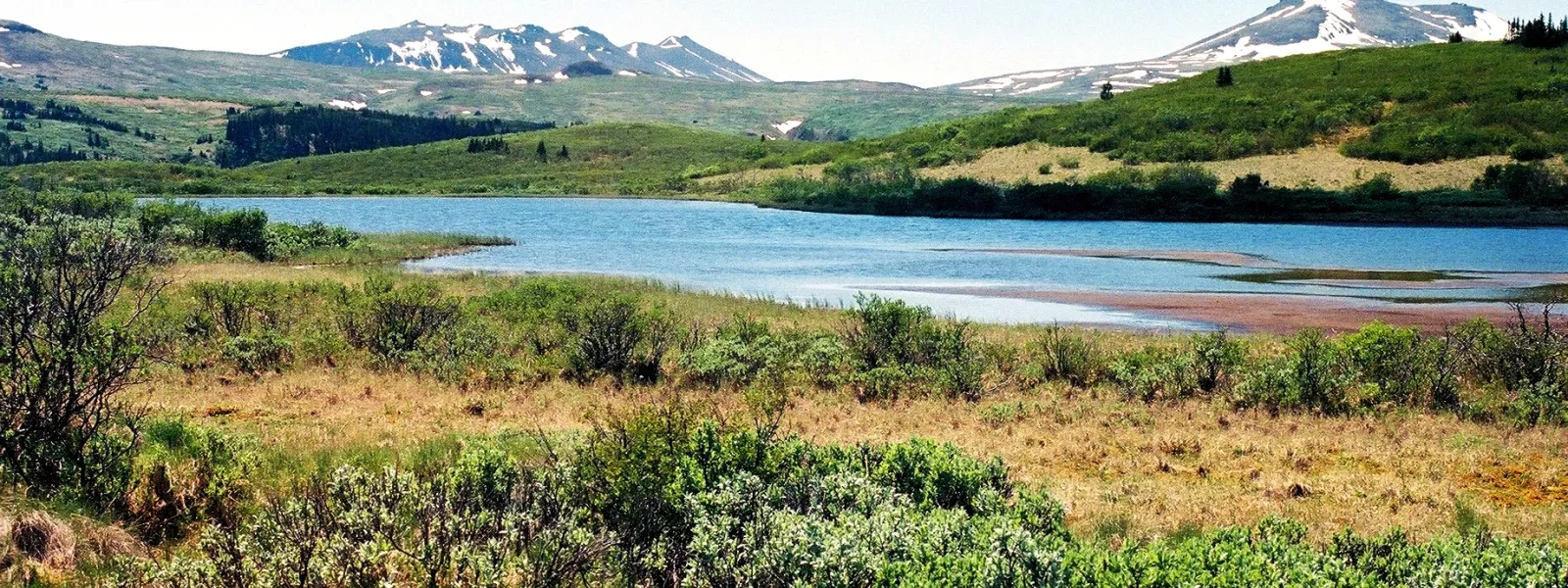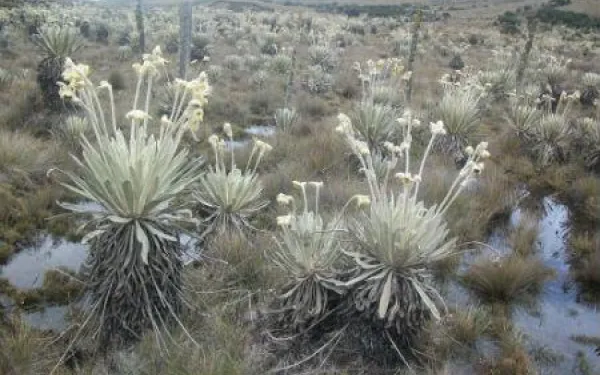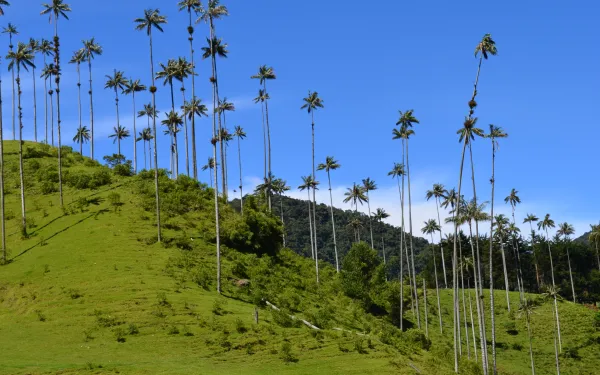
Project
Photo: Steven Ablitt / Cassiar WatchVictory: Canada supports public participation and environmental assessment
Thanks to a court ruling to which AIDA and our allies contributed, Canadian authorities must allow active participation in all mining and industrial megaprojects, as well as comprehensive environmental impact assessments.
The decision came after a long legal battle that began in 2006. That year, an open-pit copper and gold mine called Red Chris was approved without the adequate evaluation of its environmental impacts. It was sleighted to process 30 thousand metric tons a day.
The Imperial Metals company intended to build the mine in the Kapplan River Valley, a remote and pristine natural area home to large mammals such as Dali’s sheep, caribou, bears and moose. In addition, the area is part of the migratory salmon route and the Tathlan indigenous community lives nearby.
The company had fragmented the project into small parts to avoid evaluating the full impact of the project, thus violating international standards and the right to public participation.
In 2009 AIDA filed a brief with Canada’s Supreme Court in support of a lawsuit filed against the project by MiningWatch and Ecojustice.
The ruling remains a powerful tool to protect huge expanses of pristine and valuable land for its biodiversity, water sources, and the culture of indigenous communities.
It was a watershed moment in terms of ensuring companies fulfill their obligations when developing projects that put at risk the natural environment and those who depend on it.
Related projects

What are the páramos and what can you do to protect them?
By Carlos Lozano, legal advisor, AIDA, @CLozanoAcosta What are páramos? The answers to this question are the very reasons why we must support their conservation. They are rare and unique ecosystems. The páramos provide an environmental service to more than 100 million people. They possess the greatest botanical biopersity of all high-altitude ecosystems: 60% of their plant species are endemic (that is, they are found only in the páramos). Their formation is a slow and steady process that has taken hundreds of thousands of years. Although the Colombian páramo is considered tropical because it is situated near the equator, the climate is not hot. It is rather cool due to its high altitude of 3,000 meters (9,842 feet) above sea level. The páramo is a geographical paradox: a frosty ecosystem found in a tropical zone. It alsois an incredible beauty. They form a major part of Latin American history. The páramo was dubbed “the land of the mist” by the conquistadores. The indigenous inhabitants incorporated the páramo in traditional ceremonies as it was considered to be a sacred area. The Muisca people of Colombia’s central highlands believed that the páramo gave birth to their primordial mother, the mythological Bachué. The famous legend of El Dorado also originated in the páramo; A Muisca chief was said to have covered himself in gold and thrown himself into Lake Guatavita, prompting the conquistadores to go on a great gold rush in the search of his treasures. During the Colombian War of Independence, Simón Bolívar crossed the Pisba páramo to elude Spanish army sentinels stationed on the main roads. They are a vital water source and a carbon sink that combats climate change. The páramos feed streams, rivers, aquifers and water catchment areas. These in turn supply water to major South American cities including Bogotá and Quito. The páramo also have a remarkable ability to store water through its vegetation and unique geological and ecological features. It also acts as a carbon sink, accumulating carbon through organic matter in the soil. Invasive activities like mining have a detrimental impact on this process by releasing carbon stored in the soil, contributing to global warming. These points demonstrate how the páramos play an important role as a vital source of water and an ally in combating climate change. Their protection is crucial for our future. In Colombia, where more than half of the world’s páramos are located, the government is making a decision on the future of these valuable and fragile ecosystems through a process of officially demarcating their territorial boundaries. Despite the ecological and environmental importance, the boundaries of the Colombian páramos still have not been defined. This poses a serious risk to the area as it is left vulnerable to harmful activities that could destroy it. To truly protect the páramos from irreparable damage it is essential to clearly define its territorial boundaries. The Santurbán páramo, located between the departments of Santander and North Santander, will soon become the first area to be officially demarcated, according to government plans. Mining interestsalready pose a threat to the area. What is urgent now is for Colombia’s minister of environment to demarcate the Santurbán páramo territory based on scientific criteria. AIDA is taking online action to call for this proposal. With YOUR SIGNATURE, you can support the cause and pressure the government to protect the páramos. Join us to protect the páramos!YOU CAN SIGN too (in Spanish)!ASK Colombia’s president and minister of environment to properly delineate the Santurbán páramo NOW! #SaveSanturbán
Read more
Letter to the Board of the Green Climate Fund
Organizations, movements and civil society groups from developing countries -with decades of experience working for the rights and aspirations of peoples and communities- express their unified call for the adoption of the most robust environmental and social protections at the Green Climate Fund.
Read moreHow to end the reign of plastic bags and learn to take care of our environment
By María José Veramendi Villa, senior attorney, AIDA, @MaJoVeramendi Some months ago my colleague at AIDA, Haydée Rodríguez, wrote an interesting post in this blog called Plastic bag? No thank you (Spanish only). I confess that it shocked me to read the post because although I had a general idea of the harmful effects of plastic bags on the environment, I didn’t realize the profound damage they can cause. This made me reflect on Peru, where plastic bags reign supreme, and where there is very little public awareness of their harmful impacts, that they poison and kill marine wildlife and pollute the environment, among other things. In most shops, almost all products are packed in plastic bags no matter how small. Some statistics An investigation entitled the Study on the Perceptions, Attitudes and Environmental Behavior regarding the Unnecessary Use of Plastic Bags was carried out in two districts of Lima. The results, published in a July 2012 article on the Ministry of the Environment's website (Spanish only), found that 94% of the businesses studied used plastic bags exclusively to package their consumer products, while 60% used between one to three plastic bags for every purchase and 36% used three to six. The article announced the launch of a campaign to reduce the use of plastic bags in the northwestern province of Piura, called “Healthy Living with Health Bags.” Other than this article, I couldn’t find any further public information on the campaign’s impact or whether it had changed people’s behavior, something that would have made it possible to gauge if the campaign had the potential to be replicated elsewhere in the country. The day to day In most Peruvian supermarket chains, plastic bag usage is exaggerated. Sometimes checkout assistants pack small items in separate plastic bags, generating a huge amount of unnecessary plastic. A few months ago I visited a well-known Lima supermarket and asked the clerk why they didn’t attempt to cut down on plastic bag usage. I suggested that the supermarket should charge money for plastic bags as an incentive for people to bring reusable bags made of cloth. He said, “Oh, if we did that people would stop coming… There are people who ask us to use more bags or double bags, and if we didn’t, they’d call us stingy.” Attitudes like this illustrate the disregard that various sectors of Peruvian society have for environmental protection. Biodegradable bags? In 2007, Peru’s largest supermarket chain, Grupo Wong, which owns the Wong and Metro supermarket chains and is now owned by Chile’s Cencosud, introduced the use of biodegradable bags, a practice then replicated by other supermarkets in the country. Wong bags come with a caption that reads, “This bag will biodegrade without leaving any contaminant residues.” The manufacture of the bags “includes a special additive that causes the bag to disintegrate into smaller pieces when it comes in contact with oxygen, sunlight and friction, a process which then allows microorganisms such as fungi or bacteria to feed on its remnants, converting the bag into water, biomass, salt minerals and carbon dioxide, just as we do when we exhale air,” Wong says on its website. A real alternative? The bags used by Wong supermarkets seem ordinary enough. The difference is the special additive ingredient that accelerates the disintegration of the bag. “This means that the plastic is broken down into smaller particles that are so small that you can’t see them. In the first phase, the waste cannot be assimilated with plants (Spanish only)”. Inapol, a Chilean maker of conventional and biodegradable plastic bags, says that while “a conventional plastic bag takes about 300 years to biodegrade, our bags that contain the special oxo-degradable additive reduces this time to approximately two years, depending on the external factors that accompany the process. Exchange of contaminants According to a European Bioplastics study, the additives in the oxo-biodegradable bags consist of chemical catalysts thatcontain transition metals like cobalt, magnesium and iron, among others. In this process the disintegration of the plastic bag is caused by a chemical oxidization of the plastic’s polymer chains, triggered by UV radiation or heat exposure. According to the study, the waste would eventually biodegrade in the second phase. The study points out that the breakdown of the biodegradable plastic bag is not a result of natural biodegradation but of a chemical reaction. The waste remnants remain in the environment, something that does not present an adequate solution to the problem. It only transforms visible waste particles into invisible contaminants. There have been significant advances and an increase in awareness in the business community on the need to take care of the environment. But doubts remain about the natural biodegradation of plastic bags such as those used by Wong supermarkets, and whether they present a real sustainable solution for the environment. As Peru is such a creative and perse country, why shouldn’t it adopt alternatives to plastic packaging such as reusable cloth bags and recycled materials, and employ their use across the country? Isn’t this something to think about? We must change our mentalities for things to improve. To paraphrase Haydée, we need to say, “No thank you” to plastic bags. We should learn to reuse and recycle so that we can take care of what we love and, above all, where we live.
Read more